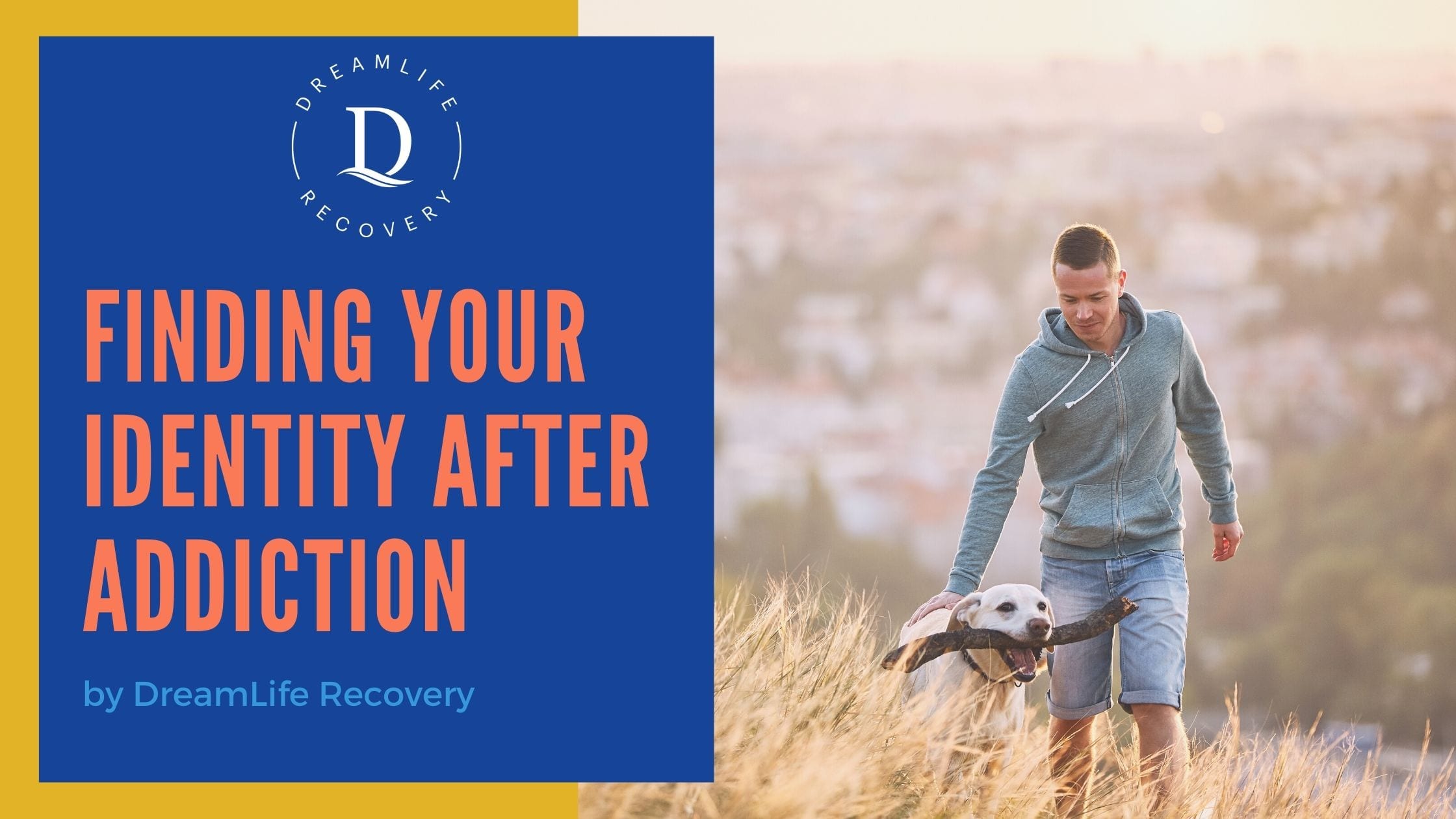Finding Your Identity After Addiction


Written By
DreamLife RecoveryIn the throes of addiction, you are not usually taking the time to consider the abstract idea of identity. You are too caught up in the addiction to really ask, “Who am I? Who do I want to be?” Maybe in those moments when something has gone wrong and you are forced to face reality, questions like this may surface. There may be a genuine desire to “be a better person,” but then the addiction takes control again, and that desire gets buried under the need to use.
But once you get help to treat the addiction, this may change. After you go through detox and residential treatment, when the substances are out of your system and you’ve had time to reflect and start healing, you may find yourself asking, “Who am I outside of my addiction?” Perhaps you had a new identity in addiction that you now recognize wasn’t who you really are or isn’t who you want to be.
For a successful recovery, you will need to put in the work to find your identity or rediscover who you were before the addiction. This may seem daunting, but it is an opportunity to start on your journey to self-discovery. In fact, it can give your life structure while you are in recovery after addiction.
What is Identity?
First, let’s talk about what we mean by identity. Identity is formed by the experiences, memories, relationships, and values we hold that create a sense of self. Identity is influenced by family, friends, peers, and experiences. There are many facets of identity that relate to how we look, what we like, who we love, our shared culture, and our abilities and skills. Our race, ethnicity, socioeconomic class, religious beliefs, political opinions, sense of morality, and spirituality all affect our sense of self.
People have cultural identities, national identities, professional identities, personal identities, gender identities, and sexual identities. All of these are part of how we identify ourselves, so that when we ask ourselves, “Who am I?” we can come up with a cohesive identity that defines us. That may change over time and as we grow, but it helps us to feel complete and to find a sense of purpose and structure in life.
Navigating Trauma
Get Help TodayHow Can I Find My Identity After Addiction?
After addiction treatment, many people struggle to figure out who they are. Finding a sense of self after addiction can feel uncomfortable and vulnerable because the people around you may already seem to have a solid sense of identity. You might feel like you are lost and may even feel embarrassed because lately what has defined you and how you spend your time, money, and the people you developed relationships with all relate to addiction and substance use.
That is okay. You should not feel embarrassed, but it’s okay to acknowledge any feelings that surface. Even acknowledging those emotions is a starting point. From there, you need to connect with yourself and begin to find what motivates you and decide what you’d like to become. Give yourself time and have a open mind as you take advantage of your clean slate to redefine yourself.
Maybe you want to be a better parent to your kids. Direct your energy there. Maybe you want to be a better partner, spouse, son or daughter, or a better friend. Re-connecting with people you may have lost touch with during the addiction are all great places to begin finding your identity.
You might focus on a healthier lifestyle. Many people in recovery take solace in exercise and mindfulness activities like yoga and meditation. You can take it a step further: join a running group, a CrossFit gym, a boxing club, or a yoga and meditation community in your area. Connect with people who share your interest and can help you cultivate it.
You could pick up with hobbies and interests you stopped doing during the addiction. Maybe you used to like singing. Sing in the shower! Take voice lessons. Call up your friend with a guitar and sing with them. Maybe you used to read a lot. Join a book club in your area or get a library card and spend time there reading to get out of the house and find a safe space. Maybe you have always loved animals. Adopt a rescue pet or volunteer at a shelter. Maybe you liked being outdoors. Go hiking. Try rock climbing or go camping. Find what you enjoy doing, what gives you a sense of purpose and do it.
View Your New Identity as Something You Gain in Recovery
There are so many options and avenues to pursue. You are more than your addiction. Reclaiming your identity is another thing you can gain in sobriety. It might feel tricky and bring up a range of emotions when you consider what you lost in the addiction, but make sure that you always redirect your thoughts back to what you are gaining in your recovery. That’s the key to finding an identity after addiction. If you cling to the idea that you have lost your identity in addiction rather than focusing on how you have gained a sense of identity in recovery, you may struggle more to stay on track. As you find yourself counting the losses, try to counter it with the gains, which, more often than not, far outweigh the losses!






